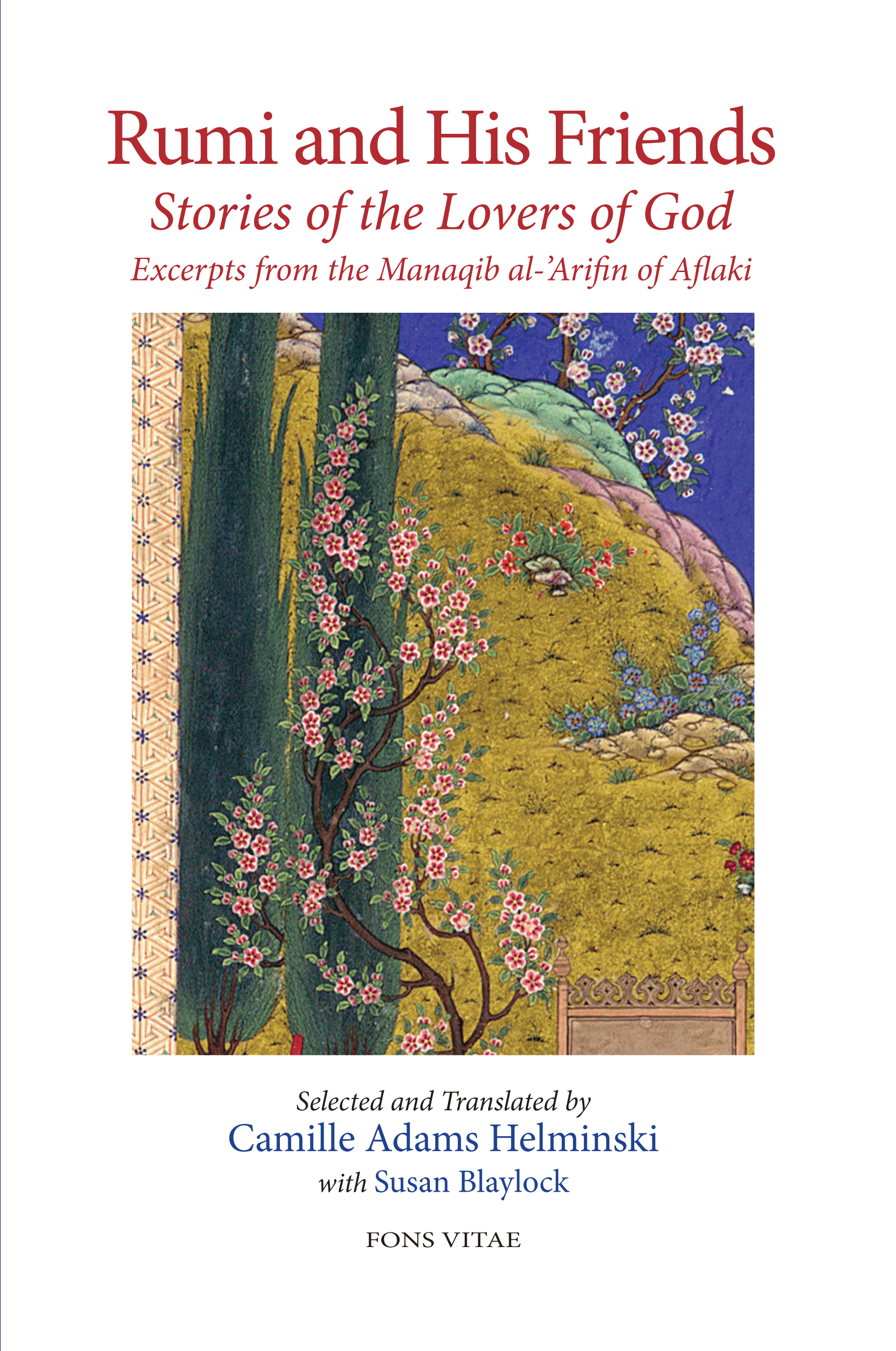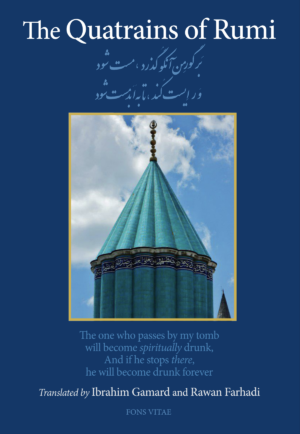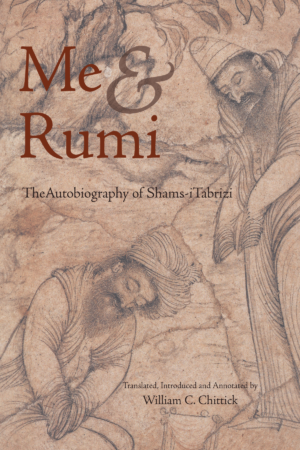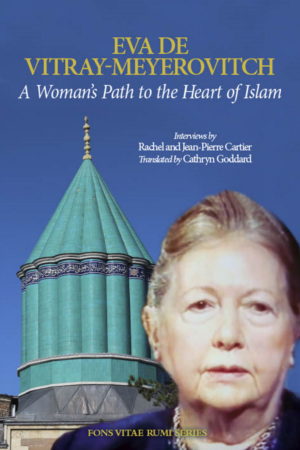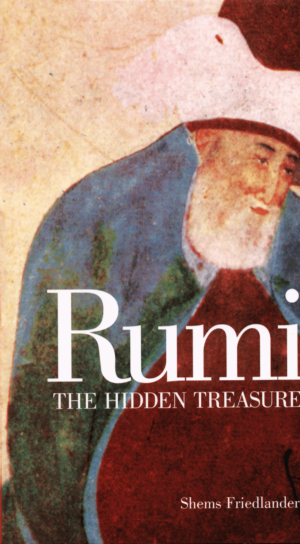EXCERPTS FROM THE BOOK:
Sultan Bahauddin Walad told us one day:
My father [Mevlana Jalaluddin Rumi] said, “O Bahauddin, when the seed of my teaching has taken root in your heart, you will understand—reflect deeply on my teaching and really try to absorb it and if you do, felicity will be yours. Know that the body of the prophets, the saints, and their friends will never perish. A seed thrown into the earth may appear to die and disappear, however, at the end of a few days it comes to life and grows into a flourishing tree. In a similar way the body of the prophets and the saints will also come to life again.”
He was absorbed in the mystery described in the Qur’an [51:21]: Have you not looked within?
“There is nothing in the world that exists outside yourself;
look into the depths of your being for that which you desire.”
A Grateful Servant [82]
One day, when Mevlana was seven years old, during the early morning prayer, he was absorbed in reciting the chapter in the Qur’an that begins: Truly, we have bestowed upon you the source of abundance (kawthar)[108:1].
“I was calling to God,” said Jalaluddin, “when all of a sudden, in His Infinite Mercy, He revealed Himself to me and I lost consciousness. When I came to, I heard a mysterious voice that said, “O Jalaluddin, in Our Infinite Majesty, I order you to cease your striving, because from now on you will be immersed in contemplation.”
To show my gratitude, I have made every effort possible on the spiritual path and hope that it might be said of me, “Behold, he was a most grateful servant of Ours! [17:3].” I strive, burning, so that I might enable my companions to reach a beauty and perfection in ecstasy.
My heart and my soul, in the world of witnessing
have become as thin as a thread,
so that the end of the thread reveals itself to me.
We have traveled difficult roads to their very end,
and so made the road easier for others.
Follow the Trail of the Prophets [118]
Ikhtiyaruddin, the jurist (May God bless his spirit), was one of Mevlana’s disciples. One Friday, he stayed very late at the mosque, and Mevlana called for him several times before he finally came.
When at last he returned from the mosque, Mevlana asked, “What was the obstacle that made the brothers of purity so late?”
He answered, “A preacher from Khojand had mounted the pulpit and was giving advice. I suddenly felt overwhelmed by the terror of the people and was not able to leave.”
“What did the preacher say, what was his point?” asked our Master.
“In his sermon, he was promoting this idea: ‘Praise and thanks to God! Praise be to God who has guided us to this [7:42], and has not created us to be among the unbelievers, but in every way has made us superior to them.’ Everyone in the mosque abandoned themselves to supplication and lament.”
Our Master smiled sweetly and said, “What a malicious one! Witness the blind leading the blind! This man looks down on the unfaithful saying: ‘I am better than they are by a danek.’ He gloats over this, but if he were any kind of a man he would instead be measuring himself by the Prophets and Friends of God—then he would see his proper worth and understand what constitutes real perfection in a man.
There are men far above him who are on the trail of angels and prophets—God is their prey.”
Come Closer [111b]
“One day,” recounts Shamsuddin Malati, “I went to Mevlana’s house. I found him sitting alone in the assembly hall of the medresse. I bowed and sat down.
“ ‘Come closer,’ he said. I approached, and he kept saying, ‘Come closer.’ Soon, I was kneeling so close that my knee was just next to his, and I trembled in fear.
“Again he said, ‘Come, sit so that your knee touches mine.’
“Then he described, so vividly, the virtues of Sayyid Borhanuddin and the miracles of Shamsuddin Tabrizi (May God bless their innermost secrets) that I fainted.
“Then after that he said, ‘Our sultan [Muhammad] said, “Whenever one mentions the righteous, mercy descends.” This means that whenever one speaks of the righteous within this community, the rain of mercy pours down; whenever one speaks of us, God Himself pours.’ ”
Carrying the Fragrance [648]
A tradition tells us this story about one of God’s Friends, Sultan Walad’s nurse, Keramana (May God be pleased with her).[1] Keramana had become famous throughout the world for her extraordinary miracles. One day she was sitting in her retreat cell. Some time before, Mevlana had sent his sons, Sultan Walad and ‘Alauddin, to Damascus to study.
As Keramana cleaned the carrots and the turnips she was preparing for a meal, she bemoaned the absence of Bahauddin Walad and ‘Alauddin. She was listing their good qualities to herself when suddenly two angels arrived to take her to God.
“I have business here, and cannot follow you,” she told them. “I am lamenting Bahauddin’s absence.”
The angels left and then returned, saying, “You must come; God Most High is calling you.”
When they insisted, that sincere poor lady (faqira) said, “O my eyes, cry. O my tongue, continue your song. O my hands, don’t stop your work! Continue to work while I go to be near God; keep busy until I return.”
This transpired just as Keramana had requested. Her soul went to be near God and then returned; she returned to find her physical self just as she had left it. Delighted, she took her body in her arms and said,
“If at every moment I can discover the scent of the Beloved,
why would I not want to embrace myself continually in my arms?
The Speech of Paradise [635]
Sultan Walad told us:
One day, a group of distinguished men came to visit my father. That day he became quite passionate as he explained certain aspects of mysticism:
“O Bahauddin, if you wish to be in Paradise forever, be a friend to everyone and never hold malice towards anyone in your heart.”
Then he recited:
Don’t ask for more; don’t be superior to others;
be like balm and candle, not a stinging needle.
If you don’t want evil to come to you from anyone,
don’t speak evil, teach evil, or even think evil of anyone.
When you speak with goodwill about others,
you will always be happy, and this happiness is paradise itself.
If you speak with bitterness about someone,
you harbor anger, and this anger is hell itself.
When you remember your friends,
the garden of your heart blooms with happiness,
filling with roses and basil.
If you speak of enemies,
thorns and snakes enter the garden of your heart,
and you grow tired and wither.
All the prophets and saints (May peace be with them)
have realized this and acted accordingly.
Their fellow human beings, overwhelmed by their beautiful character,
are drawn to their kindness and willingly, happily, follow their path.”
Camille Adams Helminski is codirector and cofounder of the Threshold Society and the author of The Light of Dawn, Rumi’s Sun: The Teachings of Shams of Tabriz, The Rumi Daybook, and Women of Sufism: A Hidden Treasure. She has cotranslated a number of volumes of Sufi literature, including the Sufi classic Awakened Dreams and Jewels of Remembrance. She lives in Watsonville, California. Susan Blaylock is a translator.
REVIEWS for CAMILLE HELMINSKI OTHER TITLES:
For The Light of Dawn:
“In its long, active life on earth, the Qur’an has defined spiritual life, and the quest to sustain it on daily terms, for billions of people. Now, Threshold Books brings us this superb selection—a book to live with 365 days a year. Camille Helminski’s fresh translations strip time away for English-language readers, bringing us face to face with Meaning. Even the occasional browsers will be struck by the clarity and insight of this Message.” ~ Michael Wolfe, author of One Thousand Roads to Mecca, and The Hajj, an American Pilgrimage
“I congratulate you on this work and think that it will help many people to be introduced to the meaning of the sacred text.” ~ Dr. Seyyed Hossein Nasr, author of numerous books on Islam and Professor of Islamic Studies, George Washington University
“This anthology will give many non-Muslims a helpful insight into the riches of the Koran and the Islamic tradition.” ~ Karen Armstrong, author of A History of God and Muhammad, A Biography of the Prophet
“[This book] comes as a balm for the Muslim heart and soul. This exquisitely beautiful, moving expression of the virtues of the believers in Islam and other religious traditions at their best proves the spiritual unity and harmony of all mankind.” ~ Muslim World Book Review
Women of Sufism:
“Women of Sufism is a valuable addition to Sufi literature and women’s spiritual studies. Camille Helminski awakens us to the important contribution of women to this mystical tradition.” ~ Llewellyn Vaughan-Lee, Ph.D., author of Sufism, The Transformation of the Heart
“In the luminous firmament of Islamic mysticism, none shines brighter than Mawlana Jalal al-Din Muhammad Balkhi, known in English as Rumi. A wide variety of translations and versions have endeared Mawlana to untold numbers in Europe and North America. Now, through Rumi and His Friends we have an affordable collection conveying the life stories that embody the beautiful poetic teaching. English speaking audiences without access to mawlana’s orginal Persian now can see the poetry and the life side-by-side, deriving maximum baraka from the incomparable Mawlana.” ~ Professor Omid Safi
“Camille Helminski and Susan Blaylock, in these stories of Rumi and his dear ones, have both provided teachers and students with fluidly written gems of wisdom that will have a place on their shelves and next to their pillows long after their classroom doors have closed. Seekers of eternal truths, as well, will find that here, Mevlana is offering them a healing salve for their wounded hearts.” ~ Professor Alan Godlas
